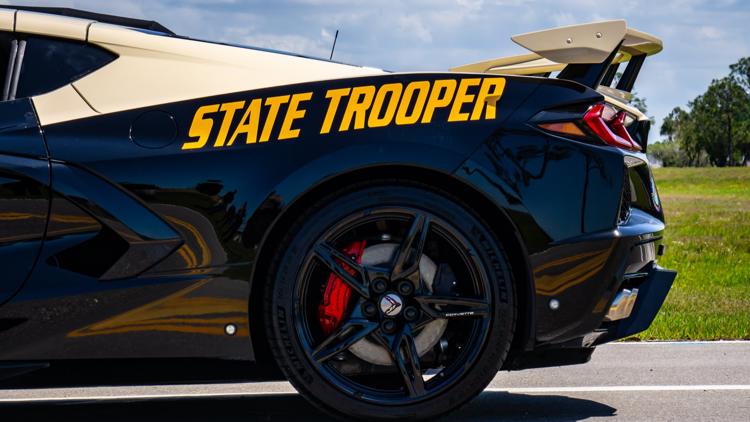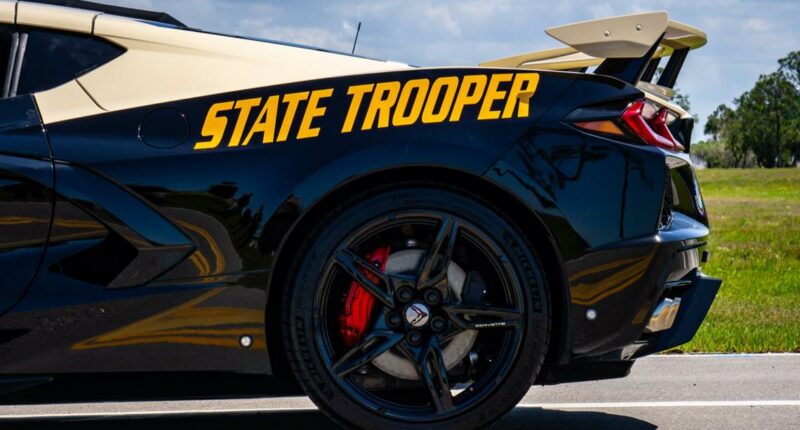Share this @internewscast.com

Florida’s new “Super Speeder” law imposes harsher penalties for excessive speeding, including jail time and increased fines.
JACKSONVILLE, Fla. — This story was originally reported by our news partners at the Florida Times-Union.
Throughout Jacksonville and the state of Florida, state troopers are enhancing their enforcement efforts as the “Super Speeder” law marks its second month. The Florida Highway Patrol aims to curb speeding, a prevalent and lethal issue on the state’s roads, as part of a comprehensive initiative to lower traffic fatalities and significant accidents.
Speeding is responsible for 26% of traffic-related deaths nationwide, according to the Florida Highway Safety and Motor Vehicles. Data from FHSMV in 2023 revealed 38,861 crashes related to speeding or aggressive driving on Florida highways, leading to 437 deaths and 1,232 severe injuries.
The Florida Highway Safety and Motor Vehicles department emphasizes that speeding reduces your capacity to react and either slow down or stop safely when faced with unexpected hazards, curves, vehicles, or obstacles on the road. They also highlight that even adhering to the posted speed limit can be hazardous when conditions are unfavorable due to weather, road work, or poor lighting.
So, how many drivers are speeding in Jacksonville? Here’s what you need to know about the super speeder law in Florida.
What is the ‘Super Speeder’ law in Florida? And when did it come into effect?
The new law, which went into effect July 1, does the following:
- Creates the crime of “dangerous excessive speeding” as anyone operating a motor vehicle:
- In excess of the speed limit by 50 mph or more
- At 100 mph or more in a manner that threatens the safety of other persons or property or interferes with the operation of any vehicle
- Adds penalties for dangerous, excessive speeding:
- First conviction: Imprisonment for up to 30 days or a fine of $500 or both
- Second or subsequent conviction: Imprisonment for up to 90 days or fine of $1,000 or both
- Convictions of dangerous excessive speeding within five years of a prior conviction will result in the driver’s license getting revoked for at least 180 days but not more than one year
- Requires a mandatory hearing before a court official for anyone driving more than 50 mph over the speed limit
- Allows the law enforcement officer to decide the appropriate civil penalty for anyone driving more than 30 mph or 50 mph over the limit
How many drivers have been pulled over since the ‘Super Speeder law’ came into effect in Florida?
Nearly a month into enforcement, the Florida Highway Patrol has caught at least 26 “super speeders” under a stringent new speed law that introduces arrests, steep fines, and potential jail time for drivers exceeding the speed limit by 50 mph or going over 100 mph.
In the previous year, at least 2,620 citations were given statewide for exceeding the posted speed limit by more than 50 mph, with 1,138 issued by FHP troopers, as reported by FHSMV data. The actual number could be higher, according to Beauford, as some super speeders may have been cited under standard speeding regulations.
The individuals faced charges under the state’s new offense, “dangerous excessive speeding,” applicable to anyone surpassing the speed limit by 50 mph or more, or driving at 100 mph or above in a reckless manner.
How many ‘super speeders’ were pulled over in Jacksonville and Northeast Florida last month?
According to Master Sergeant Dylan L. Bryan of the Florida Highway Patrol, Troop G pulled over 16 “super speeders” between July 1 and July 24.
Which zones does the FHP Troop G cover?
The FHP’s G troop covers nine counties of Northeast Florida, including Baker, Bradford, Clay, Duval, Flagler, Nassau, Putnam, St. Johns and Union.
Here’s the list of actual Speed (MPH) / Posted Speed Limit (MPH) incidents reported by FHP Troop G between July 1 and July 24:
- 114/70
- 100/60
- 101/70
- 115/70
- 111/70
- 101/70
- 117/70
- 110/70
- 107/70
- 101/70
- 130/70
- 124/70
- 120/70
- 100/50
- 112/70
- 106/70
What are the fines for speeding in Florida?
According to Florida Statute 318.18:
- 1-5 mph over the limit: Warning
- 6-9 mph over the limit: $25
- 10-14 mph over the limit: $100
- 15-19 mph over the limit: $150
- 20-29 mph over the limit: $175
- 30 mph over the limit and above: $250
However, each county or municipality can decide its own traffic fines, which can be higher. Fines are also increased, sometimes dramatically, for repeated offenses or for speeding through school zones, toll booths or construction zones. Fines will also increase if you commit other violations while speeding or if you are involved in an accident.
Felony speeders can see fines of $1,000 or more, and repeat offenders may have their licenses suspended for up to a year.
Speeding also adds points to your license.
How many points do I get on my license for speeding in Florida?
When you get a speeding ticket in Florida, you also get points against your driving record. Get enough and your license will be suspended or revoked, but even before that, points can mean increased insurance rates.
- Speeding: 3 points
- Racing on highway (even as a passenger or someone involved in organizing it): 3 points
- Driving too fast for conditions: 3 points
- Speeding more than 50 mph over the limit: 4 points
- Reckless driving: 4 points
- Speeding that resulted in a crash: 6 points
Too many points bring penalties.
- 12 points within 12 months: 30-day suspension
- 18 points within 18 months: Three-month suspension
- 24 points within 36 months: One-year suspension
You can avoid points on your license by attending an approved driver improvement school and paying a fee, but you can only do that once in any 12-month period and no more than five times in a lifetime.
You can check the current number of points on your license here.
What are the standard Florida speed limit laws?
According to the website floridacarlaws.com:
- 20 mph: school zones
- 30 mph: urban district or street
- 55 mph: all roads and highways unless otherwise posted
- 60 mph: two-lane sections of highways and freeways
- 70 mph: freeways, interstate highways, and other roads if posted
















